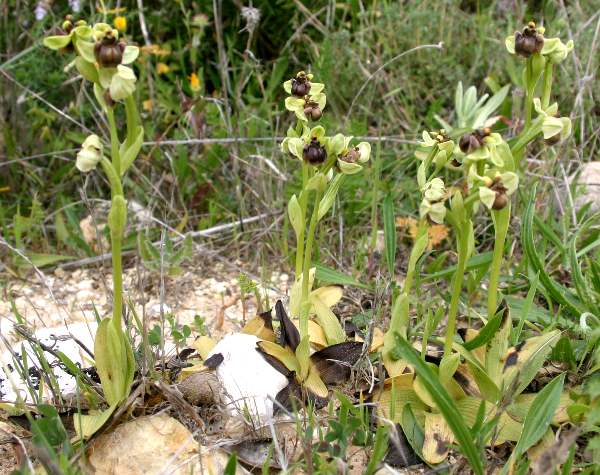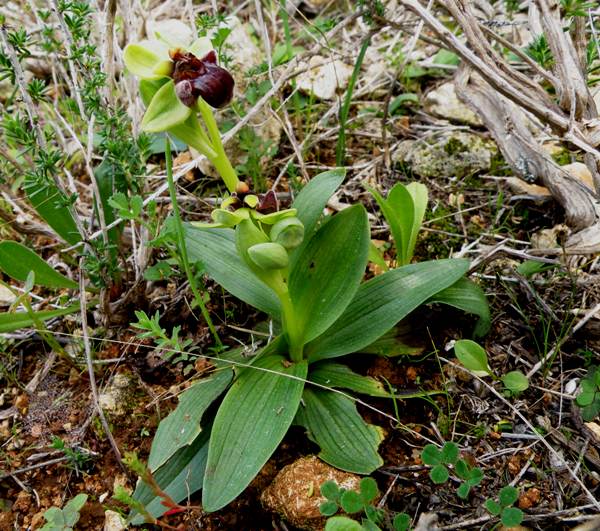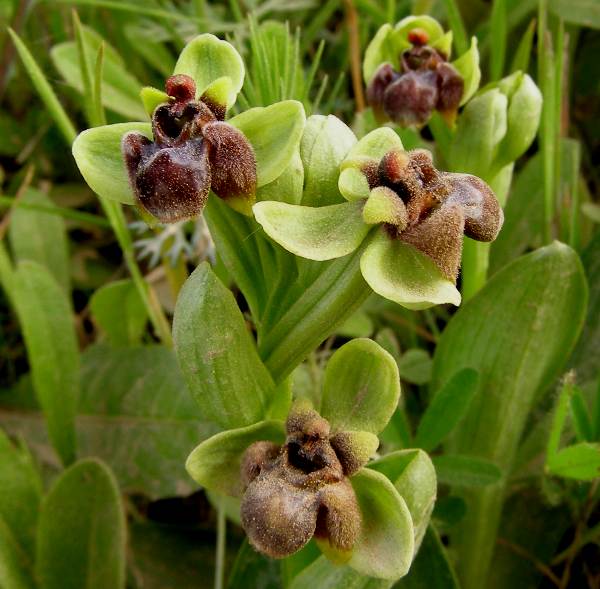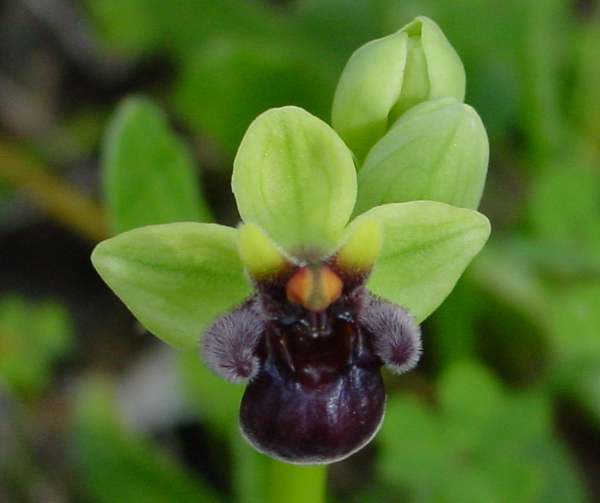Ophrys bombyliflora - Bumblebee Orchid
Phylum: Magnoliophyta - Class: Liliopsida - Order: Orchidales - Family: Orchidaceae

Above: Bumblebee Orchid plants in the Algarve
This orchid is widespread throughout the Mediterranean although our experience is that it is less common the further east you travel. In the Algarve region of Portugal it is virtually impossible to miss it because it occurs with such frequency and in great numbers.

Description
Although normally quite a short plant Bumblebee Orchid can grow up to 35 cm in height in places where it is competing with taller plants for light. The flowers have very distinctive and relatively large, oval green sepals and small, triangular petals which are sometimes tinged with a bronze colour. The lip is three-lobed and brownish in colour sometimes with a bluish speculum although this is not always present - see below. This ophrys species is unmistakable, unlike many others, and there can be little confusion when it comes to identification. Although it is insect-pollinated, the main reason for its success in building large colonies is that it also reproduces vegetatively via its numerous root-tubers.

Distribution
Found throughout the Mediterranean region but more numerous in the west.
Habitat
Ophrys bombyliflora favours calcareous substrates which is one reason why it is so common on the coast of the Algarve where the ground is sandy and has a high content of crushed sea shells. It also occurs on waste ground in the barrocal and on abandoned farmland.

Close-up picture showing the deeply divided lip of the flower of this species.
Flowering times
This orchid flowers early in the season and can often be found from February through to the beginning of April.
The specimens shown above were photographed in Portugal on the Algarve in mid March.
Etymology
The genus name Ophrys comes from Greek and means 'eyebrow' - a reference to the hairy fringe of the lip of the flower of many orchids in this genus. The specific epithet bombyliflora indicates that the flower shape resembles a bumblebee.
Reference sources
The Plant List
Sue Parker (2023) Wild Orchids of the Algarve - where, when and how to find them; First Nature e-book (Amazon Kindle format)
Chris Thorogood and Simon Hiscock (2014) Field Guide to the Wildflowers of the Algarve; Kew Publishing
Henrik AErenlund Pedersen & Niels Faurholdt (2007) Ophrys - The Bee Orchids of Europe; Kew
Pierre Delforge (2005) Orchids of Europe, North Africa and the Middle East; A&C Black
Les Orchidees de France, Belgique et Luxemborg; Parthenope Collection
Angela Rossini and Giovanni Quiadamo (2003) Orchidee Spontanee nel Parco Nazionale del Gargano; Centrografico Francescano
Claudio Del Fuoco (2003) Orchidee del Gargano
Please Help Us: If you have found this information interesting and useful, please consider helping to keep First Nature online by making a small donation towards the web hosting and internet costs.
Any donations over and above the essential running costs will help support the conservation work of Plantlife, the Rivers Trust and charitable botanic gardens - as do author royalties and publisher proceeds from books by Pat and Sue.


